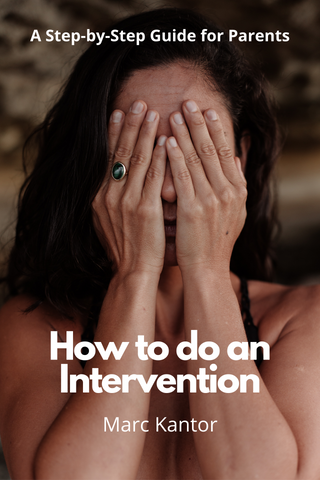Identifying the Signs of Addiction
Lying about almost everything;
Isolating and extensive technology use;
Trouble at school or work;
Stealing money and other valuable goods;
Getting picked up by the police.
Depending on the individual in question signs of addiction can be easy or hard to spot. I have heard stories of people who drank through medical school and graduated top of their class and successful business people who built large businesses while in the throes of severe addiction. You wouldn't think of these people as addicts though more is revealed about their addictions as the layers are peeled back.
For parents and spouses who have a close relationship with the suspected addict, the feeling of being disconnected or feeling like you don't know this person is a huge sign. If your gut tells you they’re using, further investigation is warranted.
Lying and withholding pertinent information is the addicts’ hallmark. If your hearing inconsistencies in their stories they may be hiding something. If something doesn't sound right it probably isn't. Addicts are known to lie about insignificant things or when it's not necessary just as they lie about big things. Sometimes addicts get into the habit of lying and truth becomes harder and harder honor.
Isolating is a worrisome behavior on several levels because most teenagers isolate but it can also be a sign of depression or someone experiencing feelings of hopelessness. The incessant use of smartphones only exaggerates the problem as it cuts the person off from family members and greatly diminishes a person physical activity and other healthy activities. The bottom line is isolating is bad and cause for alarm regardless of the presence of drugs.
Someone's inability to keep up at school or work is another possible sign of addiction. Getting fired from work for poor performance or excessive lateness are key indicators. The same goes for students facing serious consequences at school also suggest a problem. If your addict is the squeaky wheel that seems to always be getting the grease you may want to take a closer look.
Addiction and stealing are fruits of the same tree. Addicted people are known to have an ongoing supply and demand problem. That is to say, there’s never enough supply of drugs for what their addiction demands. I include my former self when telling you an active addict will do whatever it takes to get drugs including things they might otherwise consider wrong. If sums of money are disappearing without a simple and reasonable explanation it may be going to feed someone’s addiction.
Getting picked up by the police is a big indication there's a problem. Being arrested for drinking and driving or public drunkenness are sure signs of addiction. No matter what excuse your addict offers, being arrested is not something that happens to “everybody”. If you have been suspicious of someone's relationship with drugs or alcohol this should clinch the mystery. If there have been problems in the past use this occasion to transition them into treatment. If you think your addict is a danger to himself or others he’s better off in police custody then yours.
Anyone of the circumstances described above is cause for concern. If you recognize more than one of them in your person you should immediately spring into action. A quick Google search for symptoms of addiction will return a large list of resources and questionnaires to help you determine the likelihood of addiction.
It’s not hard to diagnose addiction, the disease is not shy about making itself known. What is difficult is breaking through the addict's denial. Observers see the addiction as the problem while the addict often sees the addiction as the solution. Drinking and using drugs produces euphoric feelings that once seemed to fix their problems. Often it is the case that the drugs stopped working a long time ago yet the addict holds on to old ideas of what it was like in the beginning.
South Florida Intervention offers exclusive solutions for families struggling with the devastating effects of addiction. Marc Kantor is the founder of South Florida Intervention, based in Boca Raton, Florida. If someone you know is struggling with addiction, we can help. For additional information please visit www.southfloridaintervention.com or e-mail me at marc@southfloridaintervention.com.

Download Free Guide: How To Do An Intervention
GetHelpForAddiction.com
